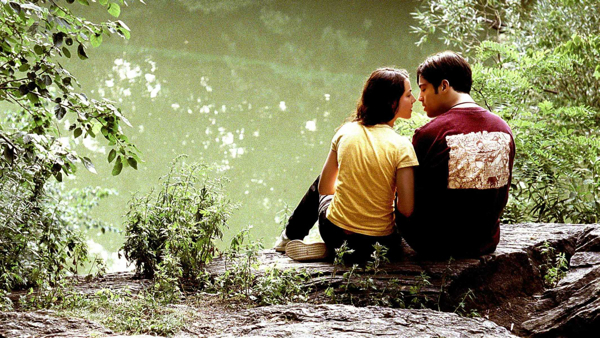Movie review by Greg Carlson
A routine coming-of-age tale enveloped in the haze of 1994 memories and plenty of marijuana smoke, “The Wackness” mostly lives up to its unfortunate title. Writer/director Jonathan Levine clings to the bare bones basics of moviemaking in both plot and style, and the results will try the patience of audience members curious enough to take a chance. Levine is blessed by the presence of Sir Ben Kingsley (who has made some eyebrow-raising choices of late), a veteran performer who knows exactly what to do with a role that seems underwritten one moment and overwritten the next. The director is not quite as lucky with former Nickelodeon kid Josh Peck, whose droopy-lidded wannabe remains too much of a poseur to earn any sympathy from viewers over the age of 25.
Peck’s Luke Shapiro, shown during the anxious gap between high school graduation and the start of college, turns out to be a pretty dreary guy. Dealing large quantities of pot out of a frozen ice pushcart in what has to be one of the unlikeliest covers for a kid who lives on the Upper East Side, Luke sulks in a depressed funk. When he is not trying to tune out his bickering parents, he trades weed for therapy with Dr. Jeff Squires (Kingsley), a shrink whose own family life teeters on the brink of dissolution. Once Luke confesses that he has an amorous interest in Squires’ stepdaughter Stephanie (Olivia Thirlby), the psychiatrist is less than enthused about the possible match.
Luke simultaneously develops separate relationships with father and stepdaughter, and occasionally Levine comes close to finding something interesting to say in the intersections of the triangle. Mostly, however, the movie is content to alternate between scenes of Luke’s blossoming romance and zany digressions detailing the increasingly erratic and desperate behavior of the self-medicating Squires as he becomes a dubious father figure to his young patient. In these moments, which Levine chooses to play mostly for comedy, Kingsley manages to find some strands of pathos.
Boasting a rich soundtrack that brims with nicely chosen cuts by Nas, A Tribe Called Quest, Craig Mack, KRS-One, the Wu-Tang Clan, Biz Markie, and the Notorious B.I.G. – to name a few – “The Wackness” only superficially explores the relationship of white kids to African American popular culture. Luke, a devoted hip-hop fan, makes mixtapes of his favorite tunes, and the almost constant presence of period-specific material serves as the movie’s strongest reminder of the mid-1990s setting. Luke’s appropriation of slang and colloquial speech proves more grating than endearing, and the script could have done without its umpteen uses of “mad” as a modifier (i.e. phrases like “I got mad love for you shorty. That’s on the real.”).
In hindsight, it was a smooth decision for Levine to wrap his story in the NYC of fourteen years ago. Besides the bizarre image of Kingsley making out with Mary-Kate Olsen, the period setting has received the lion’s share of critical notice. Some of the references have a tendency to deflate a moment by calling gimmicky attention to themselves (like Squires asking Luke if he is upset about Kurt Cobain). Other allusions, particularly in some of the female fashions, hit just the right note. For viewers of a certain vintage, “The Wackness” will conjure memories both painful and pleasurable.
